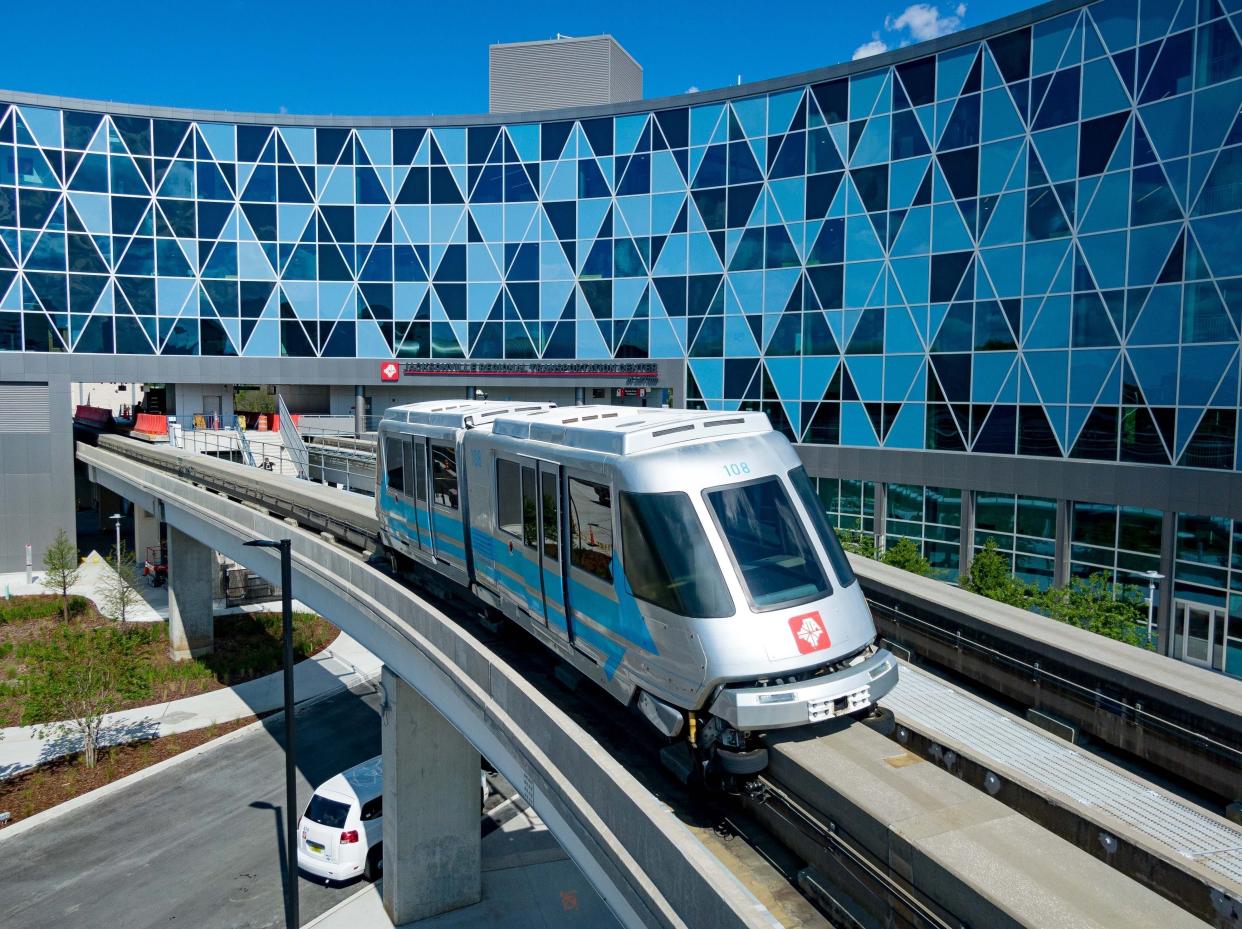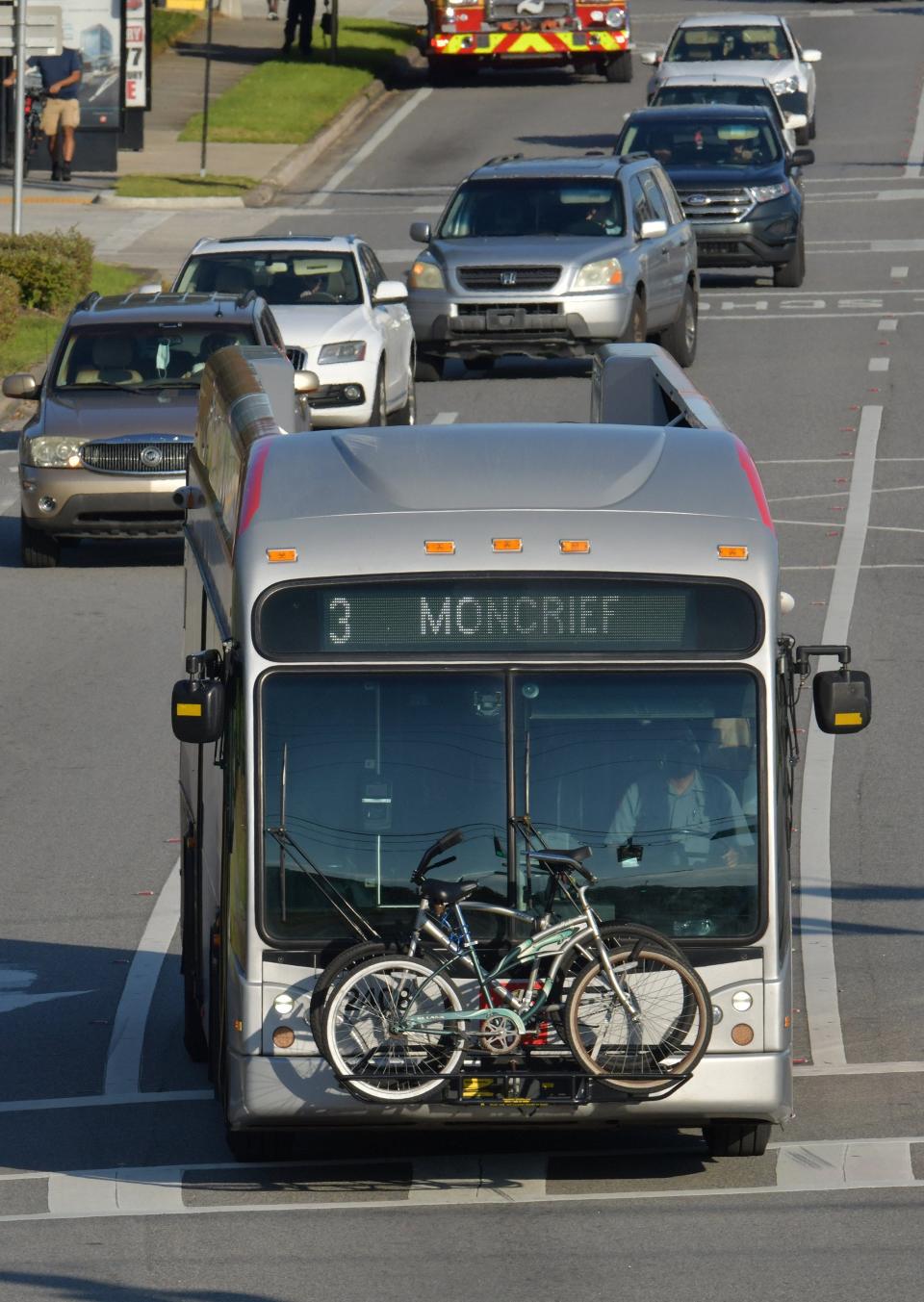UNF grad student: It’s time to talk about better public transportation in Florida

I did not get my driver’s license until I was 21 years old. For all four years of my undergraduate degree, I did not have access to a car. I went to school in Tampa, a major city with a bus system that I used every day. It took me two hours to take the bus from my apartment to my college campus.
If I had a car, it would have taken me 20 minutes.
For those who do not have access to their own car, public transportation is more than just another option ― it is the key to their independence.
For someone who is living with a chronic illness, it means having a ride to their doctor’s office. For a student, it means having the ability to make it to class on time. For those living in areas with limited access to fresh food, it means the ability to get the food to feed their families.
Mark Woods: Author walking car-centric Jacksonville, explores 'depressing' downtown
A train to the Oldest City? First Coast Commuter Rail would connect Jacksonville to St. Augustine
Letters: It could take years, but voting Republicans out is the only way to fix things
Public transportation is safer than driving a personal car. According to a 2016 study by the American Public Transportation Association, there is a 90% greater risk of being involved in an accident driving a car than by taking the bus to work.
Communities can drastically reduce their carbon footprint. The public transportation system saves the United States 6 billion gallons of gas every year.
Public transportation has so much potential, but unfortunately that potential is not being realized. Research estimates that 45% of Americans do not have access to public transportation. In metropolitan areas, there are issues with long commute times and limited bus routes. However, in rural areas public transportation can be non-existent.
So why don’t more people have access to transportation? Part of the issue is that the cities and roads were built with cars in mind. To try to establish a new transport system in an established city would be difficult and costly.
Another issue is that the United States is a sprawling country. Other countries, especially in Europe, have the advantage of shorter commutes, which makes public transport more accessible.

However, a better quality and quantity of public transport options is still worth investing in. Bus systems are already an established part of most cities. By expanding the existing system to connect the rural areas to the cities, less people would need to rely on private automobiles to commute to work. This would reduce the congestion on the roads, which would help the buses arrive at their stops at a more reliable time.
Extending the hours of the major bus routes would also be vital for improving the public transport system. Those who work night shifts would have a safe way to get to their jobs every night. A late-night bus system would also reduce the number of people driving at night when they are tired and potentially falling asleep at the wheel.
Public transportation is more than just a way for people to get around. It is a necessary issue to address when talking about any public health topic in the United States.
People can build food banks to address the issue of food insecurity. People can build free clinics to address the issue of chronic disease. People can build shelters to address the issue of housing insecurity. However, these resources are only helpful when people can get to them.

Leann Petschonek is a graduate student studying public health at the University of North Florida.
This guest column is the opinion of the author and does not necessarily represent the views of the Times-Union. We welcome a diversity of opinions.
This article originally appeared on Florida Times-Union: Public transportation more than a travel option for many Floridians

